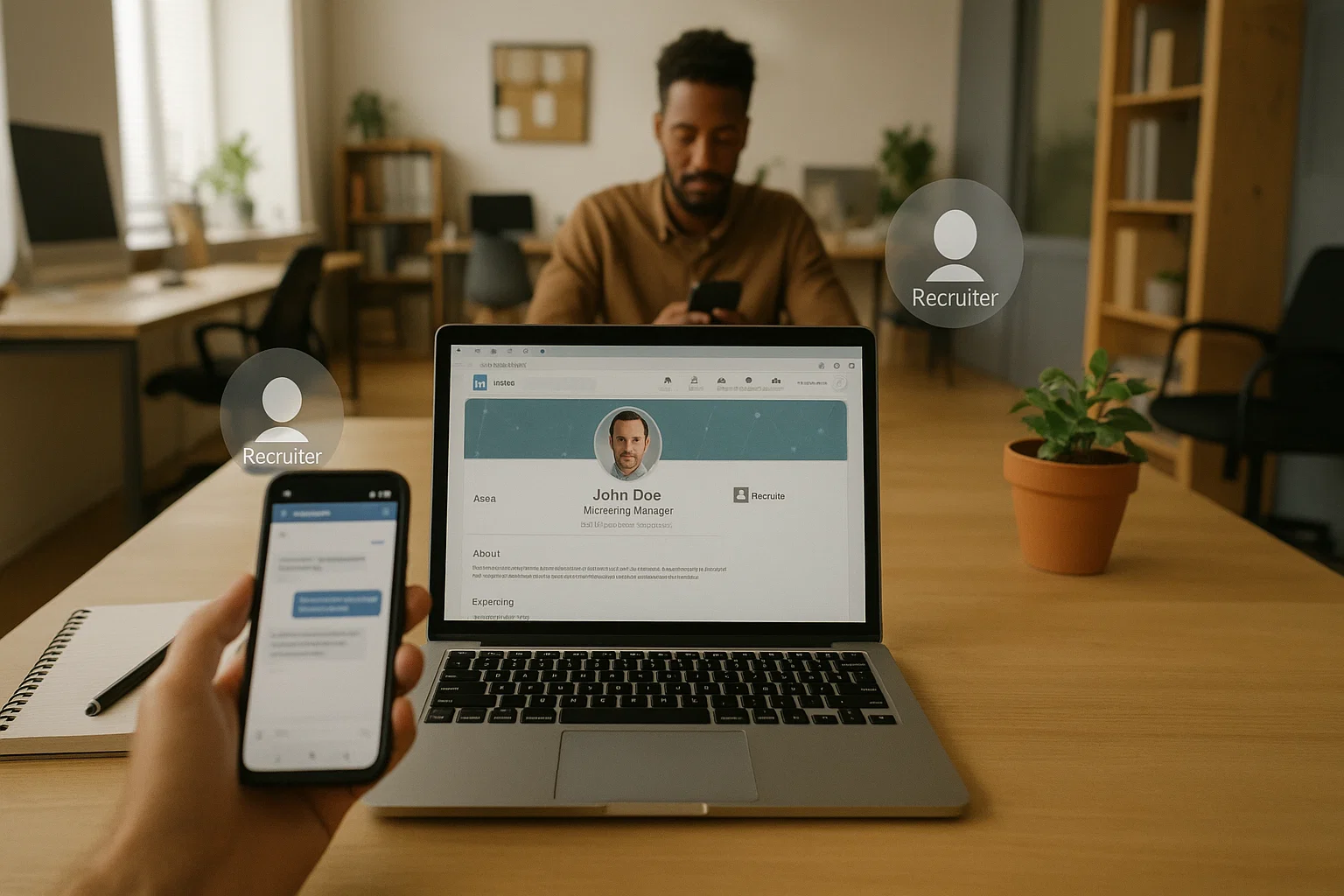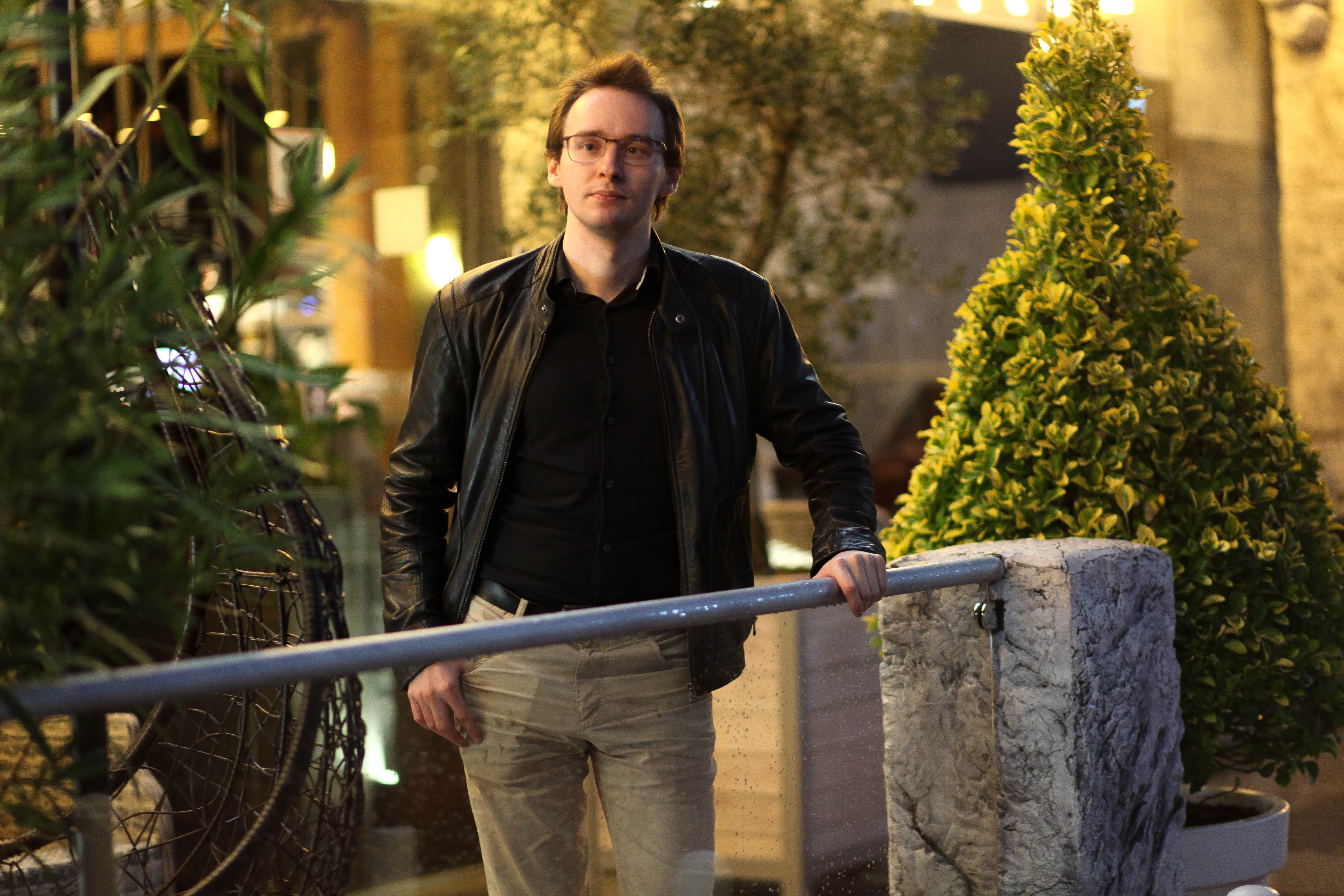Platforms and Their Superpowers
A guide to LinkedIn, Facebook, Instagram, Twitter, and Telegram for job searching

Platforms and Their Superpowers
Not all social networks are equally useful for job searching. Each platform has its own specifics, target audience, and unique capabilities. Understanding the strengths of each platform will help you choose the right strategy and not waste time.
LinkedIn: Professional Network #1
LinkedIn has long become not just a social network, but a professional ecosystem where companies, experts, recruiters, and future colleagues meet.
Today, more than 90% of recruiters use LinkedIn to find candidates [19 Surprising Social Media Recruiting Statistics (2025)]. And this is no surprise: the platform has gathered more than 950 million members from 200+ countries [About LinkedIn - Official Statistics], forming the largest global talent marketplace.
LinkedIn's main strength is its professional focus. Unlike Instagram or Twitter, no one here expects beach selfies or memes. Here they want to see your thinking, your experience, your growth story. That's why LinkedIn has become the place where you're found by leaders, investors, recruiters—even when you're not actively job searching.
Publications you share become a public portfolio. One strong post or case study often brings more responses from companies than dozens of applications on job sites. According to LinkedIn, users who create content receive 5 times more requests from recruiters [Content Trends & Visibility Report].
A powerful search system allows employers to find you by skills, technologies, experience, industry, and even achievements. You literally "appear on the radar" of those who make decisions. It's here that recommendations from colleagues become social proof of your expertise—often more convincing than any resume.
Additionally, LinkedIn gives you the opportunity to participate in professional communities, follow industry leaders, join topic groups, and dive into discussions that shape your professional reputation.
And most importantly: 52 million people use LinkedIn to search for jobs every week [Social Media Recruitment Statistics (2025)], and 6–8 specialists are hired through the platform every minute [Social Media Recruitment Statistics (2025)].
This makes LinkedIn not just a useful tool—but an essential part of a career for anyone who wants to grow.
If you take your professional future seriously, LinkedIn isn't an option. It's your digital business card, showcase of your experience, and main bridge to opportunities.
Facebook: Groups and Hidden Opportunities
Although Facebook is often perceived as a place to connect with friends, it remains one of the most powerful and underrated tools for job searching. Research shows that 60% of recruiters use Facebook to find candidates [Social Media Recruitment Statistics (2024)], and 81% of job seekers want to see career posts specifically on this network [Social Media Recruitment Statistics (2023)].
This is explained by simple logic: Facebook is the world's largest social network, and a significant portion of professional communication happens there, even if people don't call it "career networking."
One of Facebook's main advantages is its communities. In every industry, there are dozens, sometimes hundreds of professional groups: design communities, IT communities, groups for HR, marketers, salespeople, teachers. Many such groups post jobs that never reach job sites. This is the hidden market that only members have access to.
There's also a local aspect. Facebook remains the leader in the number of regional and city groups where people help each other find work, housing, services, and contacts. For career growth in small towns or for finding work near home, this is one of the fastest ways to get into the right community.
Facebook helps not only find jobs, but also build connections with employers directly. You can write a recruiter a direct message, ask a question, clarify job details, or even send a brief intro—in a more personal, human form than through an ATS system. In some industries, especially sales, marketing, education, and HR, personal connections and reputation on Facebook prove to be a deciding factor.
Additionally, Facebook remains the largest platform for event announcements—conferences, meetups, online webinars. Many jobs appear in such communities: first the employer announces an event, then within it looks for people who showed interest.
And yes—Facebook doesn't replace LinkedIn. But it covers an important part of professional reality: local connections, communities, live communication, and groups where content quality and the chance to see a "non-obvious" job are higher than on any job boards.
Instagram: For Creative Industries
Although only 11% of recruiters use Instagram [Social Media Recruitment Statistics (2024)], in a number of industries this platform isn't just a social network, but a key tool for career growth. For designers, photographers, architects, videographers, artists, and marketing specialists, Instagram works as a living portfolio that employers can evaluate in seconds.
Instagram's main strength is its visual nature. Where a resume is limited to text, an Instagram profile shows the quality of your vision, presentation style, taste, attention to detail, and individuality. Employers in creative industries increasingly look at visual platforms because they provide much more information about a professional than a PDF listing skills.
Stories and Reels help show not just the result, but the process—the atmosphere of your work, approach to tasks, your energy. Sometimes this is exactly what allows an employer to understand if this is "their" person or not.
Hashtags are another reason why Instagram powerfully works for careers. Properly selected tags allow recruiters, agencies, and clients to find you even without mutual follows. Many companies use hashtags as a tool to search for talent in visual fields.
Additionally, Instagram gives you the opportunity to write to candidates directly. A direct message often proves faster and more personal than applying through a career site. Especially in industries where it's important to see personal communication style and emotional intelligence. Switching to a professional account provides analytics, audience statistics, and even a "Contact" button, making your profile similar to a full portfolio website.
It's important to understand: visual platforms are growing in hiring. Already 23% of recruiting teams use TikTok [Social recruiting: statistics and trends (2024)], and Instagram is moving in the same direction.
In a world where visual content has become the language of communication, Instagram isn't just a profile. It's your personal brand, accessible to employers in one click.
Twitter/X: For IT and Startups
Despite Twitter (X) seeming chaotic and fast, it's one of the most influential platforms for technology industry specialists. Research shows that 47% of recruiters use Twitter to find candidates [Social Media Recruitment Statistics (2024)], and especially actively—in IT, startups, product companies, and fields related to innovation.
Twitter has become an ecosystem where the latest technical trends, new libraries, releases, architecture approaches are discussed, and jobs appear—sometimes earlier than on LinkedIn. The speed of information spread here is colossal: news about a position can spread through tech communities in minutes.
Twitter's strength is in its directness. You can reach out directly to a startup CEO, an engineer from Google, an open-source project founder, or an investor—and get a response. There's no rigid structure of "recruiter → ATS → HR → manager" like in classic hiring. Different rules apply here: those who participate in discussions, write expert threads, share experience, comment on current industry topics get noticed.
Expert threads are a separate form of digital reputation. One thoughtful thread about Kubernetes, TypeScript, ML pipelines, or startup launch experience can bring more visibility than dozens of posts on other platforms.
Twitter has also become home to a huge IT community. Developers, DevOps engineers, product managers, designers, researchers, and Blockchain/AI engineers live here. Many of them run their mini-blogs right in the feed. Recruiters watch specialist activity to find those who "live the profession."
Hashtags play an important role: #hiring, #remotework, #devjobs, #100daysofcode—not just tags, but entire spaces where jobs, projects, and teams open to hiring appear.
Since Twitter is inherently global, it's especially effective for finding remote and international roles. You're not limited to one country or language—you become part of the global professional flow.
Twitter isn't a classic career tool. But for those who work in technology, it's the place where you can become noticeable fastest.
Telegram: Speed and Direct Contacts
Telegram may seem an unusual choice for job searching, especially compared to LinkedIn or Facebook. But in reality, it has become one of the most influential platforms for career communication—especially in CIS countries, Eastern Europe, the Middle East, and the IT community.
Millions of specialists use Telegram as their primary channel for professional news, jobs, and communication. According to Statista, Telegram's audience has exceeded 900 million active users worldwide [Telegram Messenger MAU Worldwide], and growth rates continue to increase.
Telegram's main strength is speed and directness of interaction. This isn't a social network with algorithms where your post is seen in two days. This is an instant notification system: jobs appear and spread literally in seconds. In IT channels, for example, offers can disappear within hours—that's how fast the market has become.
Job channels are a separate phenomenon. Thousands of Telegram channels post positions in marketing, design, development, analytics, management, and other fields. Many of these jobs never reach job sites at all, existing only as a post in a channel or an administrator's message.
Closed and semi-closed professional groups play an important role. These are living communities where specialists exchange experience, advice, recommendations, help each other find work, and name real employers worth or not worth contacting. Social capital forms here much faster than in traditional social networks, where communication is more formal.
Telegram also stands out for its privacy. You can communicate with recruiters, employers, or channel administrators without showing a public profile—which is important for specialists who don't want to reveal their current job or personal data.
Thanks to information spread speed and living communities, Telegram has become especially effective for IT, marketing, design, product management, analytics, and related digital professions, where it's important to respond to opportunities quickly.
Telegram isn't just a messenger. It's an ecosystem where jobs find "their" people, and specialists find employers who value speed, openness, and direct communication.
Have Questions? Contact Us
Our team is here to help. Reach out if you have questions about mentorship, our services, or how we can support your career journey.
Meet Our Mentors
Experienced professionals from leading companies who will help you build a strong professional brand on social media and find your dream job.

Mikhail Dorokhovich
Founder
Full-Stack Development, System Architecture, AI Integration
Founder of mentors.coach. Full-stack engineer with 9+ years of experience building scalable platforms, mentoring teams, and shaping modern engineering culture. Passionate about mentorship, craftsmanship, and helping developers grow through real projects.
Specialties:

Gaberial Sofie
Co-Founder & HR Partner
Talent Development, Team Culture, HR Strategy
Co-founder and people-focused HR professional with a background in organizational psychology. Dedicated to building compassionate, high-performing teams where mentorship and growth come first.
Specialties:

George Igolkin
Blockchain Developer
Smart Contracts, DeFi, Web3 Infrastructure
Blockchain engineer passionate about decentralized systems and secure financial protocols. Works on bridging traditional backend systems with modern blockchain architectures.
Specialties:

Valeriia Rotkina
HR & Career Coach
Human Resources, Learning Programs, Career Education
HR specialist and educator with a focus on personal development and emotional intelligence. Helps professionals find clarity in their career path through structured reflection and goal-setting.
Specialties:

Kristina Akimova
HR Strategist
Recruitment, Employer Branding, Team Well-Being
HR partner dedicated to fostering healthy team dynamics and building inclusive hiring processes. Experienced in talent acquisition and communication strategy for growing tech companies.
Specialties:
Ready to Turn Social Media Into a Career Growth Tool?
One conversation with a mentor can change your perspective on job searching. Let's make that conversation meaningful.
Your story is already enough. The right strategy just helps it be heard.